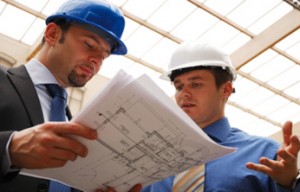Building Basements? Keep it Safe When You’re Going Underground!
 Building a basement is definitely a tough job – even for the most experienced of us!
Building a basement is definitely a tough job – even for the most experienced of us!
But it’s still appalling to see serious safety flaws in some of the most prestigious of buildings.
Worse still – when those flaws result in fatal consequences.
Recently we saw the decision from the Health and Safety Exec to carry out an urgent inspection of some of London’s most high value properties – because of a crop of incidents in basements across Kensington and Chelsea, as well as Hammersmith and Fulham.
Why? Because the last ten years have seen numerous safety disasters happening – with 27 people left seriously injured, and 17 fatalities.
Those are shocking figures – so if you’ve got a basement project lined up – here are some of the important things you should consider.
Before you get started:
Building a brand new basement under a property is a high risk job – so don’t underestimate the problems you might face!
One of the biggest potential issues? Stability. You’ll need to prep beforehand and make detailed plans about the planned excavation and building.
This means thinking ahead. Will you need any temporary support or propping arrangements? A temporary works engineer is the most fully competent person to design a plan and run through any possible concerns.
Get your plan in gear:
Once you’ve got your temporary works engineer, then what?
You’ve still got a way to go before you should start excavating. A construction sequence is really helpful – map out what and when you’ll be doing things, and what infrastructure needs to be in place at each stage.
You’ll also need to work out how you’re going to get people and equipment in and out, as well as excavated material and ground water. The last thing you want is to end up leaving a digger buried in the rubble!
Starting work:
You’ve spent all that time and effort getting your plan in place – so make sure you put it into action!
That’s the easy part. You’ll also need to keep an eye on things as they progress. Check out all sides of the excavation – does it need support as you go on? Remember to keep a watch for potential building collapse.
It’s not just the building you’ve got to think about – don’t forget your workers and any other people around!
Make sure there are barriers in place to prevent people falling into excavated areas – this will also stop materials from falling in too. You’ll also need to ensure that there is suitable access to the basement and any trenches. This should be fixed – keep ladders and other unstable routes to a minimum.
Your takeaway points
- Make sure that you’ve planned thoroughly before starting. Get in a temporary works engineer to help you do this
- As you start to put your plan into action, set out a construction sequence to order how you’ll be doing things, and what you will need
- Ensure you’ve got sufficient access for both people and equipment
- Once work starts, keep an eye on progress and look out for potential building collapse
- Keep an eye on safety for your workers and other people – there should be fixed access to the basement.
Have you worked on a basement recently? What issues did you face? Let us know!

A chartered (fellow) safety and risk management practitioner with 20+ years of experience. David provides a healthy dose of how-to articles, advice and guidance to make compliance easier for construction professionals, Architects and the built environment. Get social with David on Twitter and Linkedin.



